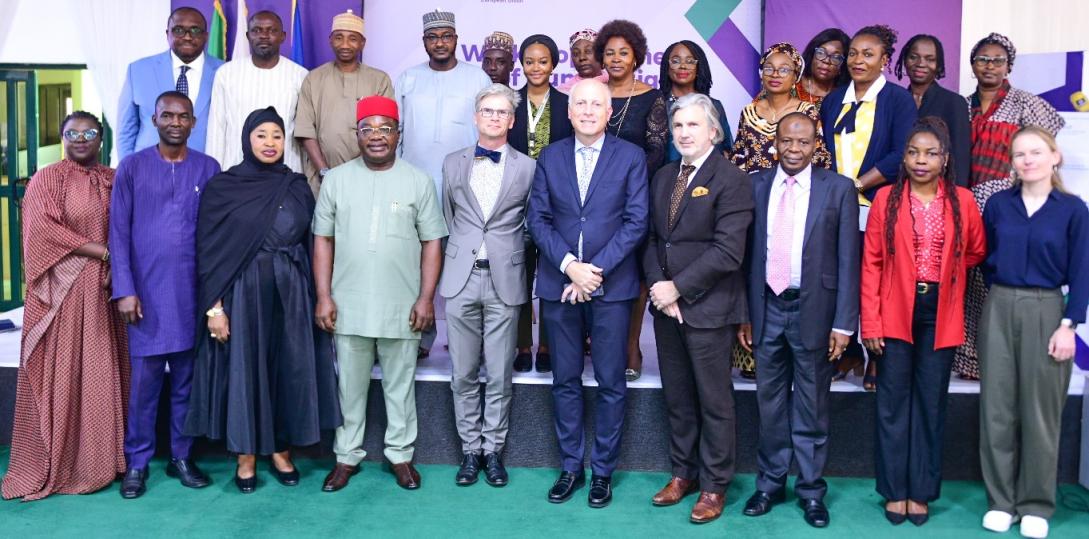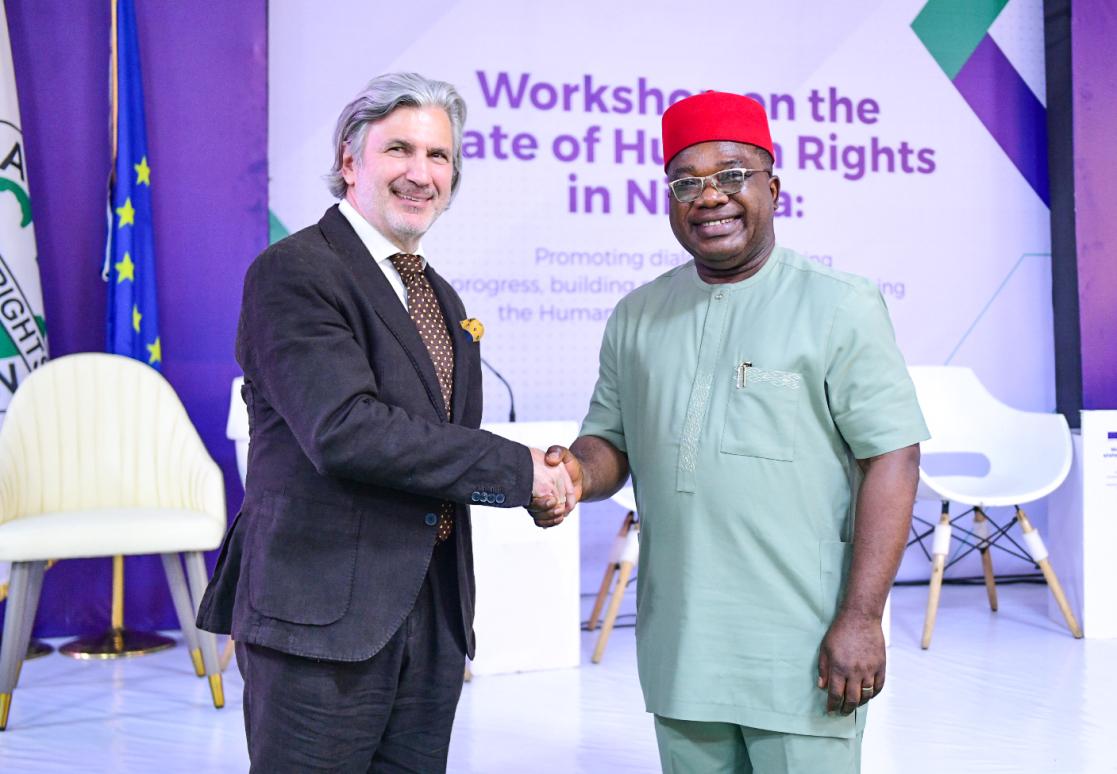EU, Human Rights Commission, others unite against rights violation

Key stakeholders in Nigeria’s civic space, including civil society actors, marginalised groups, the media, the bar, and representatives of EU Member States converged on Abuja on 13 November 2024, to beam the searchlight on human rights situation in Nigeria. The ‘Civil Society Consultation on the State on Human Rights’ was a collaborative effort between the EU Delegation to Nigeria and ECOWAS and the National Human Rights Commission (NHRC), culminating in the inauguration of Human Rights Defenders Forum. In attendance were Portugal’s Ambassador, Mr Paulo Santos, his Belgian counterpart, Mr Pieter Leenknegt, and representatives of the German and Dutch embassies in Abuja
Underlining the significance of the event, the Deputy Head of EU Delegation to Nigeria and ECOWAS, Mr Zissimos Vergos, said it resonated with the EU’s works alongside Nigeria in promoting enforcement of human rights frameworks in conformity with international standards. He said the EU would continue to advocate for the rule of law as a cornerstone of democratic governance.
In a country like Nigeria, he noted, this is more important given the role it plays in both the ECOWAS region and the African continent, where it remains very influential as the largest democracy. “The European Union recognises the importance of partnering with Nigeria in itinerary to democratic governance and human rights,” he said.
According to him, the wide spectrum of the EU’s support framework on democracy and human rights “reflects our intention to share and submit to the maximum degree possible our own lessons learnt and paradigms of policy, regarding institutional and societal pathways to democratic governance and human rights.” However, “it is for the Nigerian stakeholders and constituencies to assess, streamline within their realities, priorities and circumstances,” he stated.
The EU, he said, would continue to support training programs for law enforcement agencies, judiciary and human rights defenders and also collaborate with CSOs to ensure that the advocacy space remained strong and vivid. Other areas of interest to the EU include efforts to combat gender-based violence, protect the rights of children and promote freedom of expression.
Identifying the capacity building of Nigerian institutions and civil society as a key aspect of the EU support, he noted that “training programs for law enforcement agencies, judiciary, human rights defenders are essential in fostering a culture of accountability and respect for the rule of law.” He also identified supporting judicial reforms, enhancing the independence of the judiciary, and promoting accountability mechanisms as vital components of the advocacy.
Executive Secretary of the National Human Rights Commission, Mr Tony Ojukwu, described the event as a significant milestone in the collective efforts to advance human rights and protect the defenders who tirelessly work to uphold these rights, even in the face of adversity.
“The human rights landscape in Nigeria is a complex and evolving one. While we have made strides, challenges remain, especially regarding the protection of civic space and the safety of human rights defenders,” he said. According to him, recent years have witnessed alarming trends, including restrictions on the rights of individuals and organizations to operate freely, and threats against those who dare to speak truth to power. “These developments serve as a stark reminder that the protection of human rights is an ongoing struggle that requires continuous vigilance, action, and cooperation from all sectors of society.”
According to Ojukwu, the consultation was a unique opportunity “to take stock of where we are, engage in constructive dialogue, and identify solutions to these pressing challenges. It is also a testament to the power of collaboration.” He commended the EU for partnering with the Commission to organise the forum, noting that “the EU’s unwavering commitment to promoting human rights and supporting civil society efforts across the globe is commendable, and we are honoured to work with them in Nigeria.”
He explained that the inauguration of the Human Rights Defenders Forum underscored the importance of creating a unified platform for those who work at the frontlines of human rights protection. “The forum will serve as a space for defenders to share experiences, exchange ideas, and strategize on how to address the myriad challenges they face. It is crucial that we stand together to provide human rights defenders with the necessary support and ensure their safety at the frontlines,” he said.

EU Del
